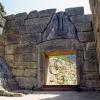Ислямизира ли се Европа?
-
Последна активност
-
- 2 мнения
- 34 прегледa
-
Руско-украинската война 2022-2024 година. 1 2 3 4 161
От Р. Теодосиев, in Руско-украинската война 2022 година.
- 4014 мнения
- 242405 прегледa
-
- 1901 мнения
- 160200 прегледa
-
- 4956 мнения
- 242476 прегледa
-
- 146 мнения
- 110283 прегледa
-
-
Последно разглеждащи 0 Потребители
- No registered users viewing this page.




Препръчано мнение